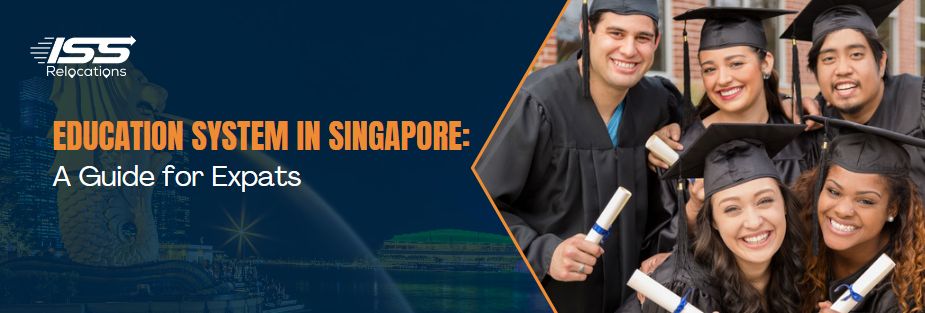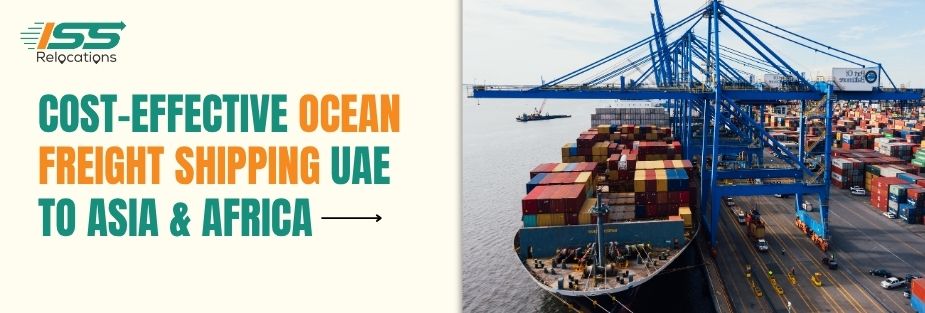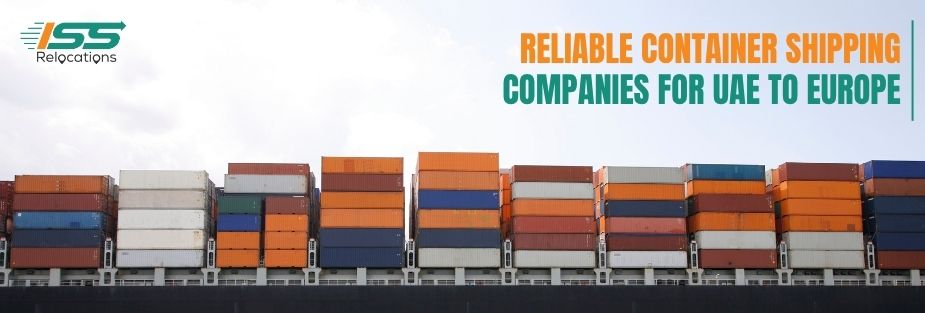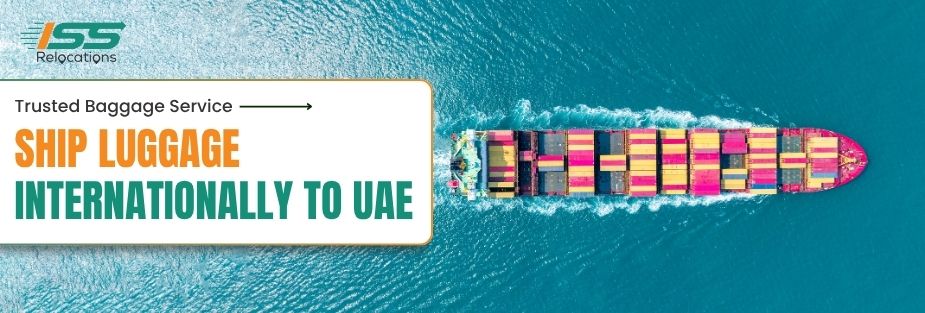
Education System in Singapore: A Guide for Expats
The education system in Singapore is renowned for its rigorous standards and strong emphasis on academic excellence. For expat families relocating to this vibrant city-state, understanding how this system works is essential to ensure a smooth transition for their children. Singapore’s education framework is not only highly structured but also deeply rooted in the nation’s cultural values, promoting both academic achievements and character development.
Moving to a new country can be challenging, especially when it comes to ensuring that your children receive the best possible education. The education system in Singapore is designed to cater to a wide range of learning needs, offering various options that can suit the diverse backgrounds of expat families. As you plan your move, having a clear understanding of how this system operates will help you make informed decisions about your child’s educational journey.
ISS Relocations offers tailored support to families as they navigate the complexities of settling into Singapore, including guidance on selecting the right schools and understanding the enrollment process. With the right information and resources, your family can smoothly adapt to the education system in Singapore, ensuring your children’s academic and personal growth in this new environment.
Understanding the Education System in Singapore
Structure of the Education System
The education system in Singapore is divided into several key stages: preschool, primary, secondary, and tertiary education. Each stage is carefully designed to build on the previous one, ensuring a seamless progression through a student’s academic journey. Preschool education, while not mandatory, is highly encouraged as it lays the foundation for future learning. It is typically followed by six years of primary education, which is compulsory for all children.
Primary education in Singapore focuses on providing students with a strong grounding in core subjects such as English, Mathematics, and Science, along with Moral and Social Studies. Following primary school, students move on to secondary education, where they are placed into different academic streams based on their Primary School Leaving Examination (PSLE) results. These streams include the Express, Normal (Academic), and Normal (Technical) tracks, each catering to different learning paces and abilities.
For families relocating to Singapore, understanding the education system is essential for planning a smooth transition. Professional moving services can assist in making your relocation hassle-free, helping you settle quickly so your children can start their academic journey without delay. Whether you are moving for work or personal reasons, combining expert moving support with knowledge of the local education structure ensures a stress-free experience for expat families.
Tertiary education in Singapore offers a variety of pathways, including junior colleges, polytechnics, and universities, allowing students to pursue specialized academic or vocational training. This multi-tiered structure of the education system in Singapore is designed to accommodate the diverse talents and interests of students, preparing them for future careers and lifelong learning.
Types of Schools in Singapore
Singapore offers a variety of schooling options to cater to the needs of both local and expatriate families. The public or government schools are the most common, known for their high academic standards and rigorous curriculum. These schools follow the national curriculum, which is aligned with the goals of the Ministry of Education (MOE) and places a strong emphasis on STEM (Science, Technology, Engineering, Mathematics) education, as well as language proficiency.
For expat families, international schools in Singapore offer an alternative that may align more closely with the educational systems of their home countries. These schools often follow curricula such as the International Baccalaureate (IB), British, American, or other national education systems. International schools provide a multicultural environment, which can be particularly beneficial for expat children adapting to a new culture while maintaining continuity in their education.
Additionally, there are private schools in Singapore that offer unique programs, including specialized courses in arts, sports, or technology. These schools may offer more flexibility in their curricula, catering to students with specific academic or extracurricular interests. The education system in Singapore also includes special education schools that cater to students with learning difficulties or disabilities, ensuring that all children have access to quality education that meets their needs.
Relocate With Confidence
Plan Education and Settling in Singapore Easily with Professional Support
Curriculum and Language Options
National Curriculum and Its Focus
The education system in Singapore is known for its robust national curriculum, which is designed to equip students with essential knowledge and skills for the future. The curriculum emphasizes a strong foundation in core subjects, including English, Mathematics, and Science, which are taught from the primary level onwards. This focus on STEM (Science, Technology, Engineering, Mathematics) subjects reflects Singapore’s commitment to producing graduates who are well-prepared for the demands of a global economy.
Beyond academics, the curriculum also includes Character and Citizenship Education (CCE), which plays a significant role in the education system in Singapore. CCE aims to develop students’ moral values, social skills, and civic responsibility, ensuring that they grow into well-rounded individuals who can contribute positively to society. The curriculum is regularly updated by the Ministry of Education (MOE) to align with global educational trends and the nation’s evolving needs.
Language of Instruction
One of the unique aspects of the education system in Singapore is its bilingual policy, which mandates that students learn both English and their mother tongue language. English is the primary medium of instruction in schools, reflecting Singapore’s status as a global hub and its multicultural society. This approach not only enhances students’ proficiency in English but also ensures they remain connected to their cultural heritage through the learning of their mother tongue, such as Mandarin, Malay, or Tamil.
For expat children, this bilingual system offers an opportunity to become fluent in English while also learning an additional language. Schools in Singapore provide support for students who may need help adapting to this bilingual environment, offering language assistance programs to ease the transition. This focus on language skills is a key component of the education system in Singapore, ensuring that all students are equipped to thrive in a multilingual world.
Enrollment Process for Expat Children
Eligibility and Requirements
Enrolling your child in the education system in Singapore involves several steps, beginning with understanding the eligibility and legal requirements. Expat children must have the appropriate student visa, such as the Student’s Pass, to attend school in Singapore. The Ministry of Education (MOE) regulates the admission of foreign students to public schools, with priority given to Singaporean citizens and permanent residents. However, private and international schools typically have more flexible admission criteria, making them a popular choice for expat families.
To enroll your child, you will need to provide several key documents, including your child’s birth certificate, passport, and previous academic records. Additionally, some schools may require a health declaration form or proof of immunizations. Understanding these requirements ahead of time can help streamline the enrollment process and ensure your child is ready to join the education system in Singapore.
Steps to Enroll in Singaporean Schools
The enrollment process in the education system in Singapore varies depending on the type of school you choose. For public schools, expat parents must apply through the Ministry of Education (MOE), often participating in a balloting system due to the limited availability of spots for international students. The application process usually begins several months before the start of the academic year, so it’s important to plan ahead.
Private and international schools, on the other hand, offer a more straightforward enrollment process. Parents can apply directly to the school, and admission is often based on the availability of spots and the child’s academic performance or entrance assessments. It’s important to note that these schools may have waiting lists, so early application is advised. Additionally, be aware of specific deadlines and ensure that all required documents are submitted on time to secure a place for your child in the education system in Singapore.
With the assistance of ISS Relocations, expat families can navigate these processes more efficiently. Our team offers guidance on selecting the right school, understanding application timelines, and ensuring that all necessary paperwork is in order. In addition to helping with customs clearance for your belongings, we provide expert support so your child can transition smoothly into their new school environment. By working with specialists who are familiar with the education system in Singapore, you can ensure a seamless and stress-free relocation experience.
Cost of Education in Singapore
Tuition Fees
Understanding the cost of education is a crucial aspect for expat families when navigating the education system in Singapore. Tuition fees vary significantly depending on the type of school your child attends. Public schools, which are subsidized by the government, offer the most affordable option, especially for permanent residents and citizens. However, for international students, fees are higher, reflecting the non-subsidized rates. Public school fees can range from a few hundred to several thousand Singapore dollars annually, depending on the student’s grade level and nationality.
Private and international schools in Singapore tend to have higher tuition fees, reflecting the premium education and diverse curricula they offer. These schools often provide facilities and programs that cater specifically to the needs of expat children, such as smaller class sizes, global curricula like the International Baccalaureate (IB), and extensive extracurricular activities. Tuition at these institutions can range from SGD 20,000 to over SGD 40,000 per year, depending on the school and the grade level. It’s important to factor in these costs when planning your family’s relocation and selecting the right school within the education system in Singapore.
Financial Aid and Scholarships
While the cost of education in Singapore can be high, there are financial aid options and scholarships available to help ease the burden for expat families. Some international schools offer scholarships based on academic merit, artistic talent, or athletic ability, which can significantly reduce tuition fees. Additionally, a few schools provide financial aid programs for families in need, offering grants or fee reductions.
It’s important to research these options early, as scholarships and financial aid opportunities can be competitive. ISS Relocations can assist in identifying potential scholarships and guiding you through the application process, ensuring that you make the most of the opportunities available within the education system in Singapore. Planning ahead and exploring these financial options can help you manage the costs of your child’s education while ensuring they receive a quality learning experience.
Extracurricular Activities and Student Life
Holistic Education Approach
The education system in Singapore places a strong emphasis on holistic development, ensuring that students receive a well-rounded education that extends beyond the classroom. Extracurricular activities are an integral part of student life, with schools offering a wide range of options to cater to different interests and talents. From sports teams and arts clubs to academic societies and community service groups, students are encouraged to participate in activities that complement their academic learning and foster personal growth.
These activities play a crucial role in the education system in Singapore by helping students develop soft skills such as teamwork, leadership, and time management. Participation in extracurricular activities is often considered during the selection process for secondary schools and higher education institutions, as it reflects a student’s well-rounded abilities. Schools in Singapore take pride in offering diverse programs that nurture students’ interests and contribute to their overall development.
Integration and Socialization for Expat Children
For expat children, participating in extracurricular activities is not only a way to explore new interests but also an important avenue for integration and socialization. The education system in Singapore provides a supportive environment where international students can engage with local peers and build lasting friendships. Through sports, arts, and other group activities, expat children can ease their transition into a new culture, gaining confidence and a sense of belonging.
Schools in Singapore often offer additional support for expat children, including orientation programs and buddy systems that help them adjust to their new surroundings. These initiatives are designed to make the integration process smoother and ensure that all students, regardless of their background, have a positive and enriching experience. With the help of ISS Relocations, expat families can find schools that offer the right balance of academic excellence and extracurricular opportunities, allowing their children to thrive in the education system in Singapore.
Call Our Experts Today
Special Considerations for Expat Families
Cultural Adaptation
Moving to a new country involves more than just finding a good school; it also means adapting to a new culture. The education system in Singapore, while known for its excellence, can be quite different from what expat families are used to. Cultural differences in teaching styles, classroom behavior, and parental involvement may require some adjustment. Singaporean schools emphasize discipline, respect for authority, and academic rigor, which can be an adjustment for children coming from more relaxed educational environments.
For expat children, integrating into the local culture is crucial for a successful educational experience. Schools in Singapore often offer programs to help international students adapt, including language support and cultural orientation. Understanding the cultural nuances of the education system in Singapore can help your child feel more at home and enhance their learning experience. Additionally, many international schools offer a blend of local and global cultural elements, making it easier for expat children to transition smoothly while still experiencing the unique aspects of Singaporean education.
Long-term Planning
When planning your child’s education, it’s important to consider not only their current needs but also their future academic and career goals. The education system in Singapore is highly structured, with key transitions at various stages, such as from primary to secondary school and from secondary to tertiary education. Planning ahead is essential, particularly when preparing for these transitions, as they often involve competitive exams and selection processes.
For families who plan to stay in Singapore long-term, it’s important to understand how the local education system aligns with potential future educational paths, whether in Singapore or abroad. For example, students in Singaporean schools typically prepare for the GCE O-Level or A-Level exams, which are recognized internationally. Alternatively, international schools may offer the International Baccalaureate (IB) program, which is also globally recognized and can facilitate smooth transitions to universities worldwide.
ISS Relocations can assist with long-term educational planning by providing insights into the various pathways available within the education system in Singapore. This ensures that your child is well-prepared for each stage of their academic journey, whether they continue their education in Singapore or elsewhere.
Wrapping Up
Navigating the education system in Singapore can seem overwhelming, especially for expat families unfamiliar with the local environment. However, with careful planning and a good understanding of the options available, you can ensure your child receives a quality education that meets their needs and prepares them for a successful future. From understanding the structure and curriculum to managing costs and adapting to cultural differences, every aspect of the education system in Singapore is designed to foster academic and personal growth.
ISS Relocations is here to support your family every step of the way, offering guidance and resources to make your transition as smooth as possible. Whether you’re choosing a school, handling the enrollment process, or planning for your child’s long-term education, our team of experts is dedicated to helping your family thrive in Singapore’s dynamic educational landscape.
You May Also Like:
Plan Stress-free Move with Top Moving Company in UAE - ISS Relocations

Frequently Asked Questions
What are the key stages in the education system in Singapore?
The education system in Singapore is divided into preschool, primary, secondary, and tertiary stages, each designed to build on the previous one and ensure a smooth academic progression.
How does the bilingual policy work in Singaporean schools?
Singapore’s bilingual policy mandates that students learn English as the primary language of instruction, along with a mother tongue language, such as Mandarin, Malay, or Tamil.
What are the costs associated with enrolling in schools in Singapore?
Costs vary depending on the type of school. Public schools are more affordable for residents, while private and international schools can have higher tuition fees, ranging from SGD 20,000 to SGD 40,000 annually.
How can expat children adapt to the education system in Singapore?
Schools in Singapore offer various support programs, such as language assistance and cultural orientation, to help expat children integrate and succeed in the local education system.
What are the options for long-term education planning in Singapore?
Families can choose between local pathways like the GCE O-Level or A-Level exams, or international curricula such as the International Baccalaureate (IB), depending on their long-term goals.
What is the current Singapore education system?
Singapore’s education system is highly regarded, offering a structured curriculum from primary to tertiary levels, with a strong emphasis on math and science. ISS Relocations supports families relocating to Singapore, helping you navigate the education system with ease.
Is public school free in Singapore?
Public schooling in Singapore is not free but is heavily subsidized for citizens. Expats often pay additional fees. ISS Relocations provides tailored support to help families find the best schooling options when relocating to Singapore.
Moving Company - Recent Blog
Stay informed and prepared for your next move with our latest blogs on moving services in the UAE. From expert packing tips to international relocation guides, ISS Relocations brings you up-to-date insights to make your moving experience smoother, safer, and stress-free.










